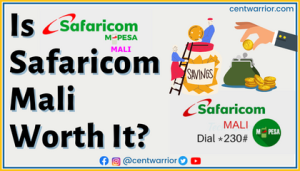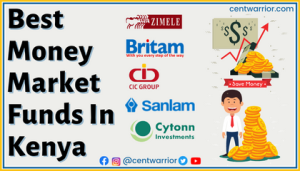There’s a new craze in town, but an ‘interesting one,’ and the name is forex trading. Presently, there are over 100,000 active Forex traders, which shows how fast investors embrace Forex trading in Kenya.
Forex trading is an investment idea that combines skill, financial market knowledge, and sound judgment. While some people think it’s a get-rich-quick scheme, it’s not. You need to learn about it, which means putting in your time and effort – and not forgetting money.
As an online trade, forex trading has pros and cons, and anyone interested in pursuing this ‘assumedly lucrative’ market should come to terms with the possibility of both sides. And, of course, there’s the issue of finding a good forex broker, which takes good research and due diligence.
This guide will explore the nitty-gritty of forex trading. We’ll even highlight some of the best forex brokers you can start trading with as we also answer some commonly asked questions about forex trading in Kenya.

Here’s a breakdown of what we’ll cover in this guide:
- What’s forex trading?
- Important forex trading terminologies you must know
- Advantages and challenges of forex trading in Kenya
- Who regulates forex trading in Kenya?
- Is forex trading legal in Kenya?
- How do I know if my forex trader is licensed?
- How can one start forex trading in Kenya?
- Beginner strategies to make money from forex trading in Kenya
- What’s the best time to trade forex in Kenya?
- How much do forex traders make a day in Kenya?
- How much do I need to trade forex in Kenya?
- Which Forex brokers allow MPESA?
- How do I choose the best forex trader in Kenya?
- Who are the richest forex traders in Kenya?
- Is OANDA regulated in Kenya?
Let’s dive in!
What’s Forex Trading?
According to Investopedia, forex trading, FX Trading, or currency trading is the buying and selling currencies to make a profit. Simply put, it’s exchanging or trading currencies through a secure platform to make a profit.
The term’ forex’ comes from the word foreign exchange. So, foreign currencies are usually involved in the currency pairing.
Case scenario
Let’s take an example of a currency pairing of the USD and Kenya Shilling at a time when the shilling value is weaker.
Assuming 1 USD equals Ksh 140 and you choose to buy $200. If that’s the case, then you’ll spend Ksh 280,000 (that’s after multiplying 140 by 200).
Suppose the Kenya shilling strengthens against the USD, and you decide to sell your $200. Then you’ll make much more than the Ksh 280,000 you paid for it.
Bingo! That’s how you make money from forex trading!
But before you can get all excited, it’s worth noting that forex trading isn’t as easy as most people think. It’s only profitable when you understand currency pairing and can buy and sell at the right time. I’ll share a few strategies you can use as a beginner to minimize the risks and make money.
Important Forex Trading Terminologies You Must Know
Here are some forex trading terms you are likely to hear and which I’ll use in this article:
- Forex Broker: An Fx Broker is a financial service company that offers forex traders a platform to buy and sell foreign currencies.
- Currency Pairing: In forex trading, currencies are traded in pairs. You use one currency to buy another, as shared in my earlier example.
- Leverage: Leverage is when traders gain exposure to the financial market after paying a slight capital upfront (known as the margin). And since traders are left with some money after paying the margin, they can use it to experiment with other promising investment options.
- Trading Position – The Trading Position or Forex Position is the trader’s expression of commitment to the trade. A trader can profit or lose when the position is open, but when they cancel their commitment, we use the term ‘Close Position.’
- Trading Platform: A Trading Platform is a web-based, app-based, or online standalone interface the broker provides for safely trading currencies. It’s where you buy and sell currencies.
- Pip: Pip is an expression of the change of value on a currency pair. For example, if the EUR/USD pair’s value changes from 1.1151 to 1.1152, that results in a difference of 0.0001, which equals one pip (if we consider the last digit).
- Trading Instrument: Trading Instruments are securities or assets you trade with, including stocks, indices, cryptocurrency, CFDs, bonds, commodities, and metals.

Other Terms
- Bid Price: Bid Price, or simply Bid, is the highest price the trader or broker is willing to purchase a given forex currency pair.
- Ask Price: Ask Price is just the opposite of Bid Price. It refers to the minimum price the trader or broker is willing to sell off a particular forex pair.
- Broker’s Spread: The Spread is the difference between the Ask Price and Bid Price, and it’s usually the forex broker’s fee.
- Forex Lot: Lot refers to the number of currency units traded. For example, if your investment is worth $1,000, that translates to 1,000 units (the Micro Lot Size). Other lot sizes are Mini Lot (10,000 units) and Standard Lot (100,000 units).
- Stop Loss: A Stop Loss stops losses from getting too big. It automatically shuts your position to allow you to manage the existing risks.
Advantages and Challenges of Forex Trading in Kenya
Fx trading has its advantages and challenges. Let’s explore them.
Advantages of Forex Trading
There are several reasons you may want to become a forex trader in Kenya, and they include the following:
- Potential for substantial growth – While there are no return guarantees in forex trading, many Kenyans have traded and reaped big. When things go your way, forex trading can be pretty lucrative.
- Trading flexibility – Forex trading allows you to trade with local and international currencies, improving your chances of getting a massive return on your investment.
- Market regulation – Through the CMA, forex trading is regulated in Kenya, which means a safer playing field for traders and investors. All you’ve to do to stay safe is to consider regulated forex brokers in Kenya.
- Low investment – You don’t necessarily have to invest large to start trading currencies. You can do it with as little as Ksh 500 in Kenya.
- Convenience – You can trade currencies any time of the day from anywhere – be it your bedroom or somewhere in the village. All you need is your computer and a safe and stable internet connection.
- Risk-free demo – Most forex brokers allow you to quickly set up a demo account, which you can practice before using real money (your actual investment). That offers you some basic experience you need to go live.
Challenges of Forex Trading
As much as forex trading has some outstanding advantages, you have to be wary of its challenges, which include the following:
- Unregulated brokers – Not all forex brokers are CMA-licensed. Once that’s the case, they may use your money for illegal trading or defraud you. Unregulated brokers may even take the opposite side and cause you to lose money. That’s a challenge to be wary of.
- Market unpredictability – There are no givens or assurances in forex trading. The market is quite volatile, and the currency continues to change constantly. What seems profitable today may not be that way tomorrow. So it’s a gamble you must take.
- Technical challenges – Online forex trading requires access to fast and safe internet, which could be challenging in some places in Kenya. Moreover, most of these forex brokers have some complicated platforms that may take a longer learning curve to master.
Who Regulates Forex Trading in Kenya?
The Capital Markets Authority (or CMA) of Kenya regulates forex trading in the country. The CMA handles the country’s licensing and approval of forex brokers and governs the issuance of trading instruments. Moreover, they carry investor education and public awareness to protect the investors from potential financial malpractice.

Is Forex Trading Legal in Kenya?
As seen above, the CMA of Kenya regulates forex trading in Kenya, making it legal. You can, however, only be sure that the trading is lawful if you go for a CMA-approved forex broker. CMA’s mandate is to create a safe environment for forex traders and investors and protect them from fraud and other malpractices. Kenyan law legally requires all local forex traders to be CMA-approved.
How Do I Know If My Forex Broker Is Licensed?
You can confirm if your forex broker is licensed in Kenya on the CMA website. Visit the CMA website and look for the ‘non-dealing online foreign exchange brokers’. Only forex brokers listed under this category are CMA-approved to conduct forex trading in Kenya legally.
Note that CMA is not the only forex regulator. There are other recognized foreign regulator bodies that accept forex traders from Kenya, and they include:
- Financial Conduct Authority (FCA)
- Australian Securities & Investment Commission (ASIC)
- Financial Sector Conduct Authority (FSCA)
- Cyprus Securities and Exchange Commission (CySEC)
We, however, recommend CMA-approved and regulated brokers in Kenya because first, they are easy to confirm from the CMA website, and second, that’s the only way you can be sure you’ll be trading legally.
How Can One Start Forex Trading in Kenya?
Starting forex trading in the country isn’t hard. You have to follow the basics and continue learning.
Here’s how to start forex trading in Kenya:
Step 1 – Choose a forex broker and open an account
Start by choosing a CMA-licensed broker and open an account with them. Remember, not all forex brokers operating in the country are CMA-approved; thus, the risk of losing money or engaging in an illegal trade lies with them.
Some of the leading licensed forex brokers in Kenya that you can consider include FxPro, HF Markets (originally Hot Forex), FXTM, and Scope Markets. I’ll share a table detailing their minimum deposits, lowest spread, leverage trading platform, and regulator later in this post.
After picking a licensed forex broker, go ahead and open an account.
Step 2 – Start with a Demo account
Don’t be too quick to start investing. It’s better to taste currency trading by setting up a demo account. It runs like a live account, except you can’t lose or gain money. Everything is all for demonstration, and it helps you gather some experience you can use during live trading.
Step 3 – Open a live account
Now that you’ve some experience to start trading, consider signing up for a live account. This one is more serious since you’ll need to put up some money and hope to gain some back. You’ll need to provide your personal and account details during the setup, including your KYC documents.

Step 4 – Start trading
Once everything looks okay, you can start trading and apply the experience you got from the demo account and the strategies I’ll share later to minimize the risks.
Beginner Strategies for Making Money Through Forex Trading in Kenya
Forex trading can be lucrative, but you’ve to master how to go about it intelligently. As a beginner, you should strategize on how to minimize the risks and capitalize on your chances of making a profit from your investment:
Here are some beginner strategies on how to make money through forex trading in Kenya:
- Trends Following: This strategy requires you to observe and follow the forex market trends when trading. Identify when the market curve starts to trend up and buy and sell as soon as the curve starts trending down.
- Scalping: Scaling is all about taking advantage of any minor price shakeups. In that case, holding your trading position for minutes or seconds minimizes your risk of losses even though it doesn’t guarantee the largest return.
- Breakout Trading: This strategy requires you to buy when prices break above the resistance level (when sellers are likely to be many) and sell when the prices are below the support level (when the buyers are likely to be many).
- Range Trading: Range Trading requires you to buy at a point when the price is close to the support level and sell when it nears the resistance level.
- News Trading: As the name suggests, this is where you base your forex trading decision on current financial market news.
Additional tips include using Stop Loss to stop making losses, not risking more than 10 percent per trade, and talking to experienced brokers.
What’s The Best Time to Trade Forex in Kenya?
Kenya’s four major forex trading sessions are the Tokyo, London, New York, and Sydney sessions. Out of the four, the first three are the most important for local traders and are popularly labeled as the ‘Forex 3-Trading System’ because they are the busiest on the international market.
Here’s a table matching all these forex trading sessions to our local time (Eastern African Time or EAT) and Eastern Standard Time or EST:
| Forex Trading Session | EST Time | EAT Time |
| Tokyo | 19:00 – 04:00 | 03:00 – 12:00 |
| London | 03:00 – 11:00 | 11:00 – 19:00 |
| New York | 08:00 – 17:00 | 15:00 – 24:00 |
| Sydney | 15:00 – 12:00 | 23:00 – 08:00 |
From the above table, the best Kenyan time to trade in forex exchange is between 11:00 and 17:00. That’s when both the New York and London sessions are busiest and tend to overlap each other.
How Much Do Forex Traders Make a Day in Kenya?
Let’s clarify: FX trading is not a get-rich-quick scheme. You have to work for it, which means investing time, effort, and money. As far as daily earnings go, they depend on the skill level, the investment, and the forex broker.
Most beginner forex traders, however, make hundreds of Kenyan shillings per day, while more seasoned investors make thousands. But again, there are no guarantees, and as in every investment, forex trading is a risk you take.

How Much Do I Need to Start Forex Trading in Kenya?
You don’t need much money to start forex trading in Kenya. Depending on the forex broker and the dollar’s value, you can start with as little as Ksh 500- Ksh 1,000.
Here’s a summary of the best forex brokers in Kenya with low minimum deposit:
| Forex Broker | Minimum Deposit | Lowest Spread | Maximum Leverage | Trading Platform | Regulator |
| Exness | $1 | 0.3 pips | 1:2000 for Fx | MT4, MT5, and Web Trader | CMA, FCA & CySEC |
| FxPro | Ksh 200 | 0.4 pips | 1:500 for majors | MT4 and cTrader | CMA, FCA & CySEC |
| FxPesa | $5 | 0 pip | 1:100 for CFDs & 1:400 for Fx | FxPesa app and MT4 | CMA |
| HF Markets (Hot Forex) | $5 | 1.3 pips | 1:400 | MT4, MT5, and mobile app | CMA, FCA, FSCA & CySEC |
| XM Forex | $5 | 0.8 pips | 1:888 | MT4, MT5, and XM app | ASIS & CySEC |
| FXTM | $10 | 1.5 pips | 1:2000 | MT5 and Web Trader | CMA, FCA, FSCA & CySEC |
| Scope Markets | Ksh 2000 | 1.7 pips | – | MT5 and Web Trader | CMA & FCSA |
Which Forex Brokers Allow MPESA?
Not all licensed forex brokers in Kenya accept payments via MPESA. A good number of them, however, do. Here are the best forex brokers in Kenya with MPESA:
- FxPro
- HF Markets
- FxPesa
- XM Forex
- Exness
- Pepperstone
- FXTM
- Scope Markets
You can refer to the earlier table for information on minimum deposits, lowest spread, leverage trading platform, and regulator of these forex brokers.
How Do I Choose the Best Forex Trader in Kenya?
Picking the best Fx broker is critical to succeeding as a forex trader in Kenya. Here are some things to consider:
- Regulation – To protect your investment and ensure you are trading legally, choose a regulated forex trader, preferably by CMA. If you don’t go for CMA, consider a top-tier foreign regulator such as ASIC, CySEC, FCA, or FSCA. But to be on the safest side, go with CMA.
- Trading Instruments – Consider a forex broker that offers access to a broader selection of securities such as stocks, crypto, CFDs, indices, commodities, metals, and bonds. So, it doesn’t have to be only forex.
- Trading Fees – You must also consider the fees the forex broker imposes as they dictate how much you’ll make. Consider the broker’s commission, withdrawal, deposit charges, and other costs.
- Trading Platform – Most forex brokers use the MetaTrader 4 (MT4) and MetaTrader 5 (MT5) trading platforms on desktop or mobile. It’s, however, not a given. So you should confirm it.
- Customer Support – The last thing you want is to start forex trading, but you can’t reach your broker or are unsure how to do it when you have a concern. So, ensure the broker you go for is accessible 24/7.

Who Are the Richest Forex Traders in Kenya?
Kenya has some of the most successful forex traders, and a majority are pretty young. It’s, however, hard to establish how rich they are as they don’t flaunt their riches. Here are some notable successful individuals in the Kenya forex trading sector:
- Kenya Forex Firm founder Patrick Mahinge
- Jay Forex Academy founder Ken Githaiga
- Sylvia’s Trader Lounge founder Sylvia Muchai
- Fourth Street Consultant Joshua Matumo
- Paris Fx Kenya founder Paul Mugenda
- Benstride founder Vincent Nyagaka
- Nairobi School of Forex founder Silah Obegi
- Influencer Ester Mofrey
Is OANDA Regulated in Kenya?
OANDA, short for Olsen and Associates, is an American forex broker with a history of over 25 years in the global financial market. They accept traders from Kenya and most parts of the world, and you only need a minimum deposit of $1 to start trading.
Concerning regulation, OANDA is not CMA-approved, at least not yet. However, it’s approved by some reputable foreign regulatory bodies, such as Australia’s ASIC and the UK’s FCA.
Concluding Thought:
Above is a comprehensive guide to forex trading in Kenya for beginners. Hopefully, you know more about forex trading and can start investing comfortably. Remember, the key is to find a trusted CMA-approved forex broker to work with and talk to more experienced forex traders.
Don’t forget to take advantage of the demo account to acquaint yourself more with the trading before going live and spending money. And when it comes to making investments, take calculated risks and use the beginner strategies we shared to minimize the risks. For clarification and questions, contact our Cent Warrior team on social media!
Also Read:







